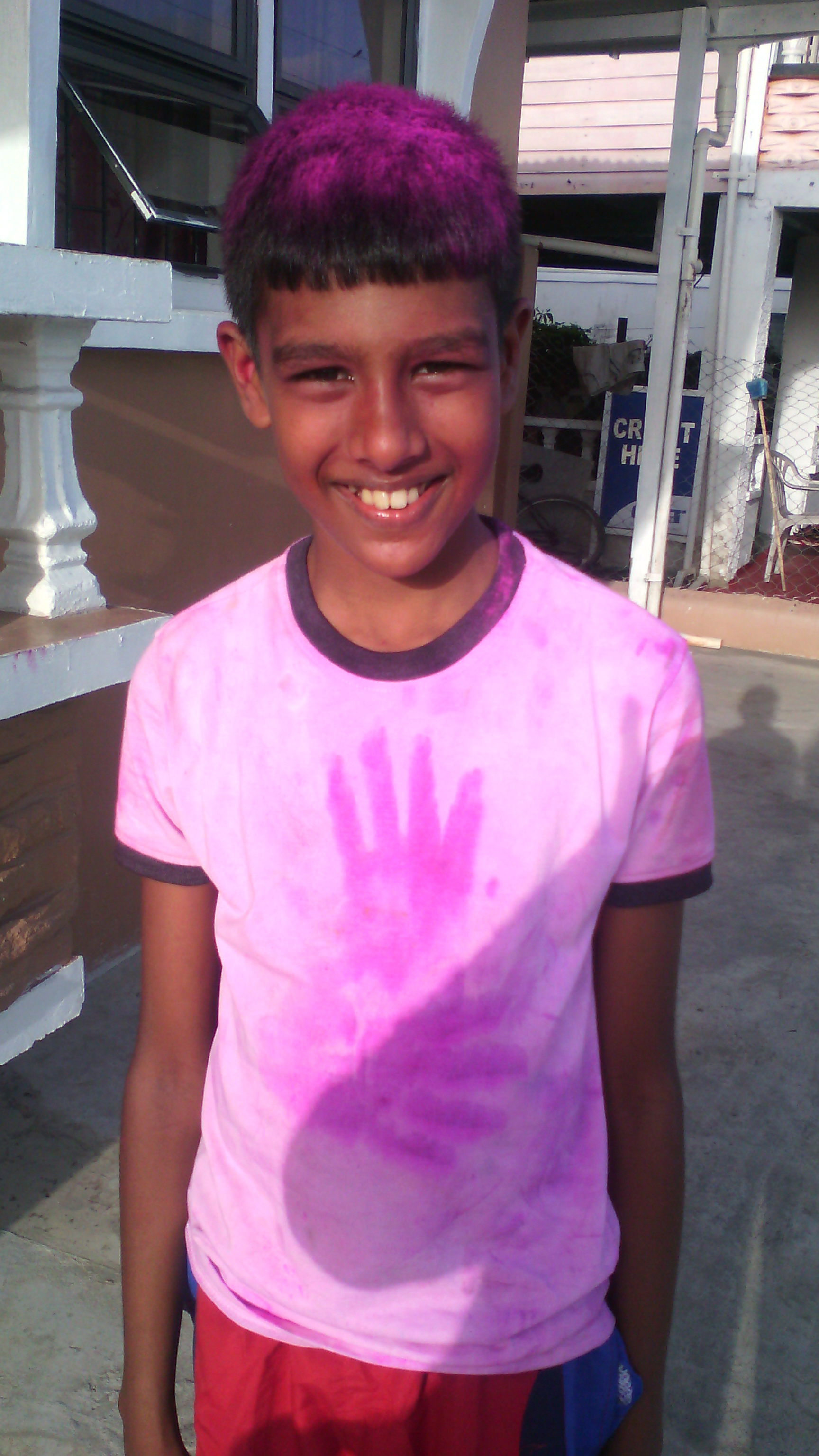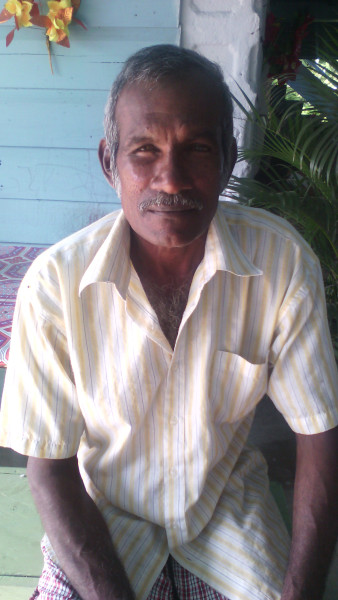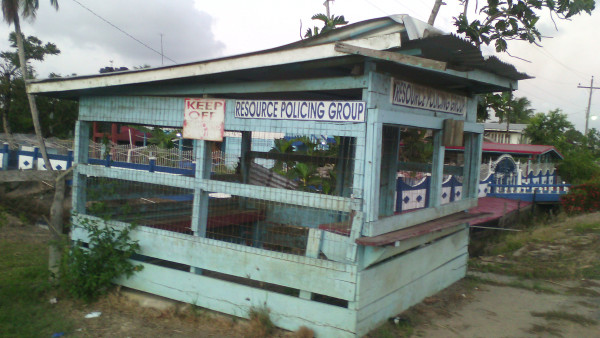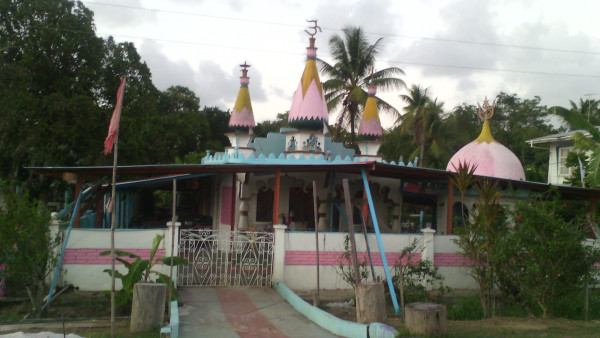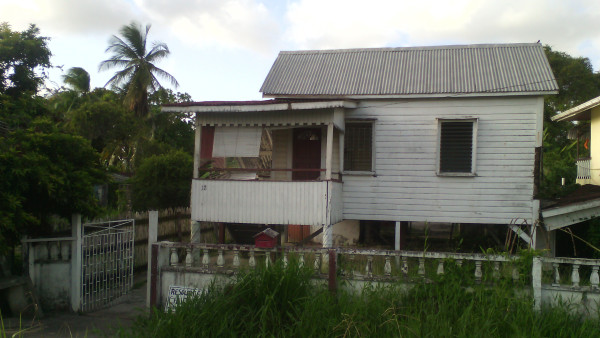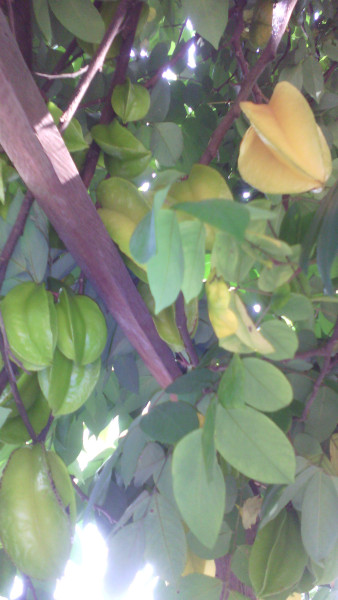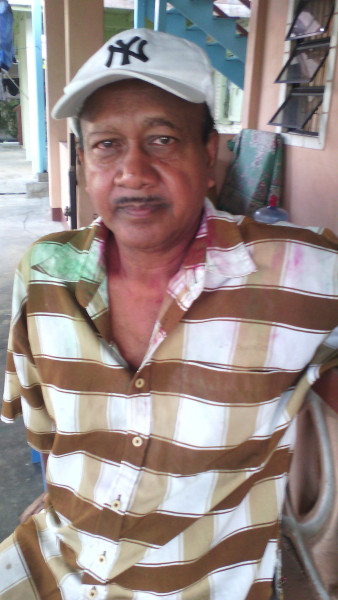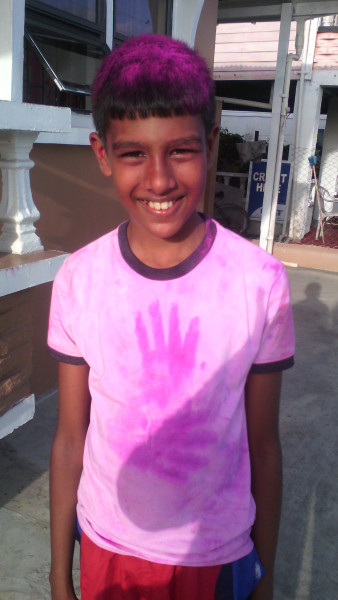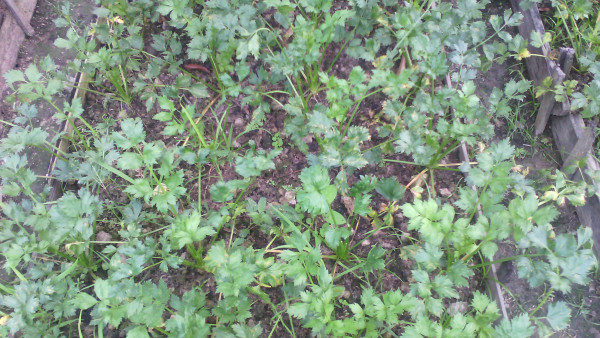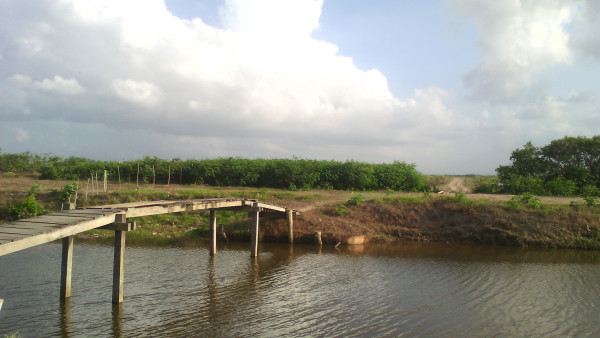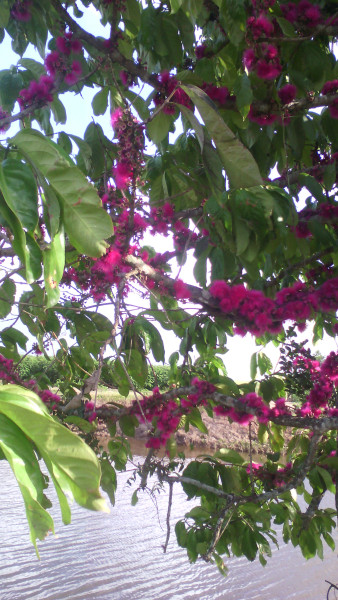Resource is another of the small villages along Canal Number Two Polder, West Bank Demerara. It is home to approximately 200 people.
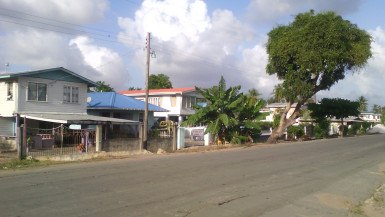
A visit to Resource on Phagwah Day saw truckloads of people driving along the main roadway, spraying random passersby with water and abeer.
Calls at a few of the houses went unanswered since some of the residents had already made their way down to the National Stadium.
But Hansraj was at home with his wife and a few other relatives who live in another house behind his. They were all sitting under the house chatting. His niece related that being Hindus they had played Phagwah early in the morning among themselves before tidying up and going about their usual household chores.
Hansraj is a cane farmer, who sells to the Wales Sugar Estate. Born and raised in Resource 58 years ago, he saw cane farming was his life since he was a boy.
He recalled that he had to walk to school every day, not a smooth pitched road but a rough one made of red burnt clay, all the way to the Endeavour and Commons Government School. “I used to walk barefoot,” he said. “You cry every day when you going and coming from school because you stump out a toenail. We [he and his siblings] had to meet to school for eight in the mornings and leave at three thirty in the afternoons. We had slates and slate pencils that we used in Lil ABC [Prep A]. By the time we reach Big ABC [Prep B] we use books. We parents had to buy everything. The government never use to give out [vouchers].
“Meh father and mother was minding goat and sheep so we used to had to tie them up and gears up to go to school. Long time was rough… When we come back from school we use to clean the goat pens, cut the grass and bring them in; then you bathe and get you book. The youths get things more easy but some of them don’t realize that until they meet with older people and see how rough it use to be. Then when I reach 12 I had to come out of school and go cut cane.
“We used to got to go out on the landing in the trench to wait for the speed boat that use to pass by.” Today there are many vehicles traversing the road and seeing a boat in the canal now would be something odd.
Back then Hansraj worked with private farmers but today he has his own farm and said he would be much affected when the Wales Estate closes. He worries what would happen with his cane farm. Apart from planting cane he also plants calaloo, cucumber and lettuce which he sells wholesale to vendors in Canal Number Two.
“Long time things were cheaper man and though you work hard for little bit of money you could have saved out of it,” he said.
“Living here is nice. It’s a quiet place. I like living here. We don’t want the Wales Estate to close down and we want better prices for our sugar. It would be good if the road could be wider and if we had better drainage. We need a library and a recreational centre for our youths,” he added.
Sixty-five-year-old Rajkumar was born in Middlesex and moved to Resource with his parents and four other siblings when he was little.
During his schooling there was no school in Endeavour so Rajkumar was forced to walk four miles every day to the Kawall Government Primary School then back home in the afternoons. He too led the life of a shepherd, taking the cattle out in the mornings and bringing them back in the afternoons. Then it was book time once night stepped. He took to his book with a lamp, straining to study. After he completed his education he went on to graduate from the Guyana School of Agriculture (GSA). He used to pedal his bicycle to the Stanleytown junction where he’d take a drop from a car then take a launch from the Wales Boat Stelling over to East Bank before finally getting a vehicle to reach GSA. According to him he was the first Canal Number Two Polder resident to graduate from GSA.
“The demand was great then for graduates, so the Ministry of Agriculture kept abreast with GSA so they knew when persons graduated. You never had to apply for jobs. They called you once you graduated,” Rajkumar said.
Appointed a job at Anna Regina by the Ministry of Agriculture, he took the train from Vreed-en-Hoop to Parika before catching a boat called Malali to Adventure. From there, he took a car to Anna Regina. According to Rajkumar, he started working as a Pest Control Officer and eventually became a manager.
He smiled saying that he found his wife there. She was his next door neighbour. They subsequently had three children and after working all along the Essequibo Coast, he took them all to live in Resource in 1998.
After a few other jobs he settled into farming. Rajkumar plants a vegetable garden and lots of pineapples.
“It’s a peaceful and quiet village unless a few neighbours have a drink,” he said. “I have a vehicle and I would like to see a better road.”
Further up the road lives Dharamdat Shiwlochan, who sells masala and pepper sauce at the Hydronie Market, East Bank Essequibo.
His school life started at the Church of Scotland La Retraite, a village outside Canal Number Two. He also recalled walking barefoot along the clay brick road and “sometimes it does take out your toenail because you walking barefoot. It was nine of us so we couldn’t afford to buy footwear.
“A rich man living in Middlesex had a rice mill and his children used to go to the Kawall Government Primary School so after I reach standard one we started going to Kawall which was a longer distance. Then they build the Endeavour and Commons School and I started going there. When we went on school tours that is when we wore shoes.”
In 1966 the National Park was opened for Independence. Queen Elizabeth was visiting and we went on a school tour to see her. Even though her hand was break she was there. I was very happy to see the queen though at the same time I was sorry for her hand. I got to touch her hand a bit,” he said, smiling as he recalled the once in a lifetime occasion.
He recalled having to take a 59-seater bus to Vreed-en Hoop before catching a steamer over to Georgetown where he once worked at the Heywood’s Pharmacy.
Life today in Resource, he said, is more comfortable compared to the earlier days, though there are no shops or schools in the village. There are however, a mandir and a church.
At the end of the village, there is a shed with a sign, ‘Resource Policing Group.’ But according to residents they’ve never seen it used.
According to Shiwlochan, they have all the basic necessities like electricity, potable water and transportation and he likes the village just the way it is.
